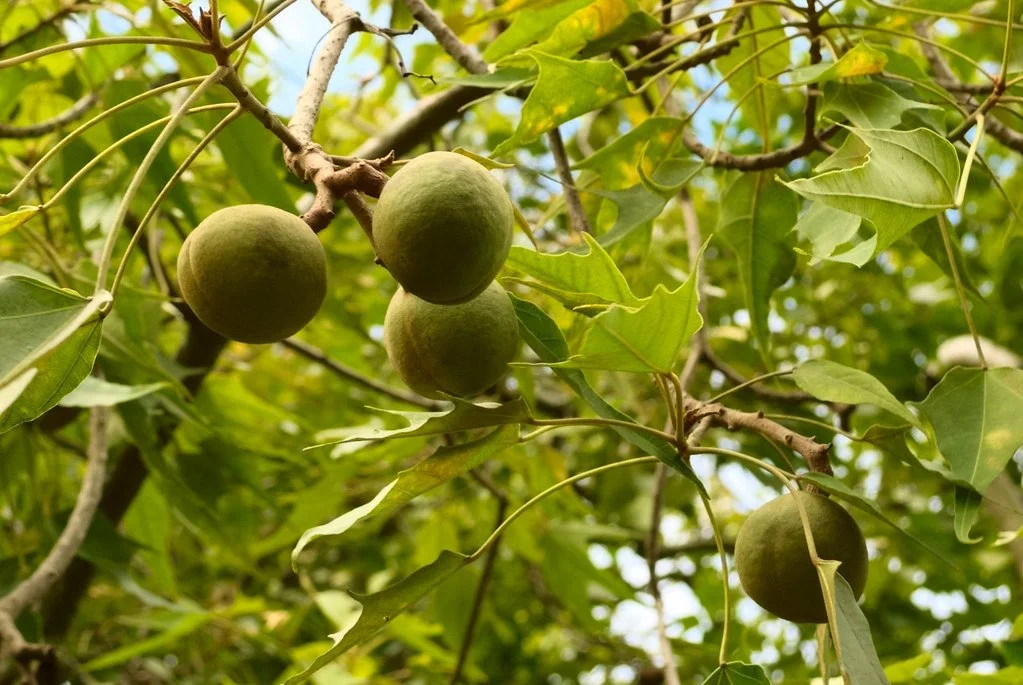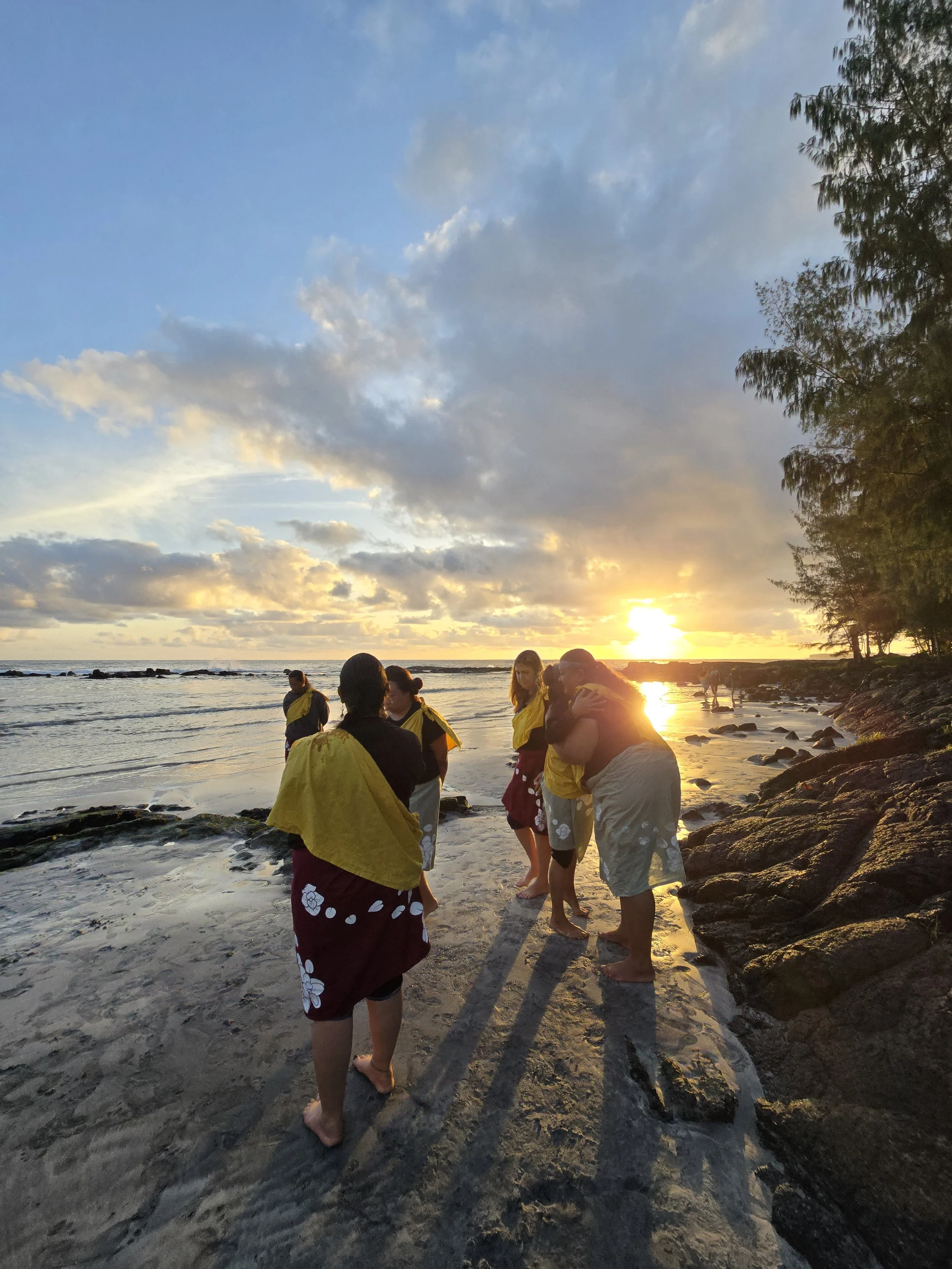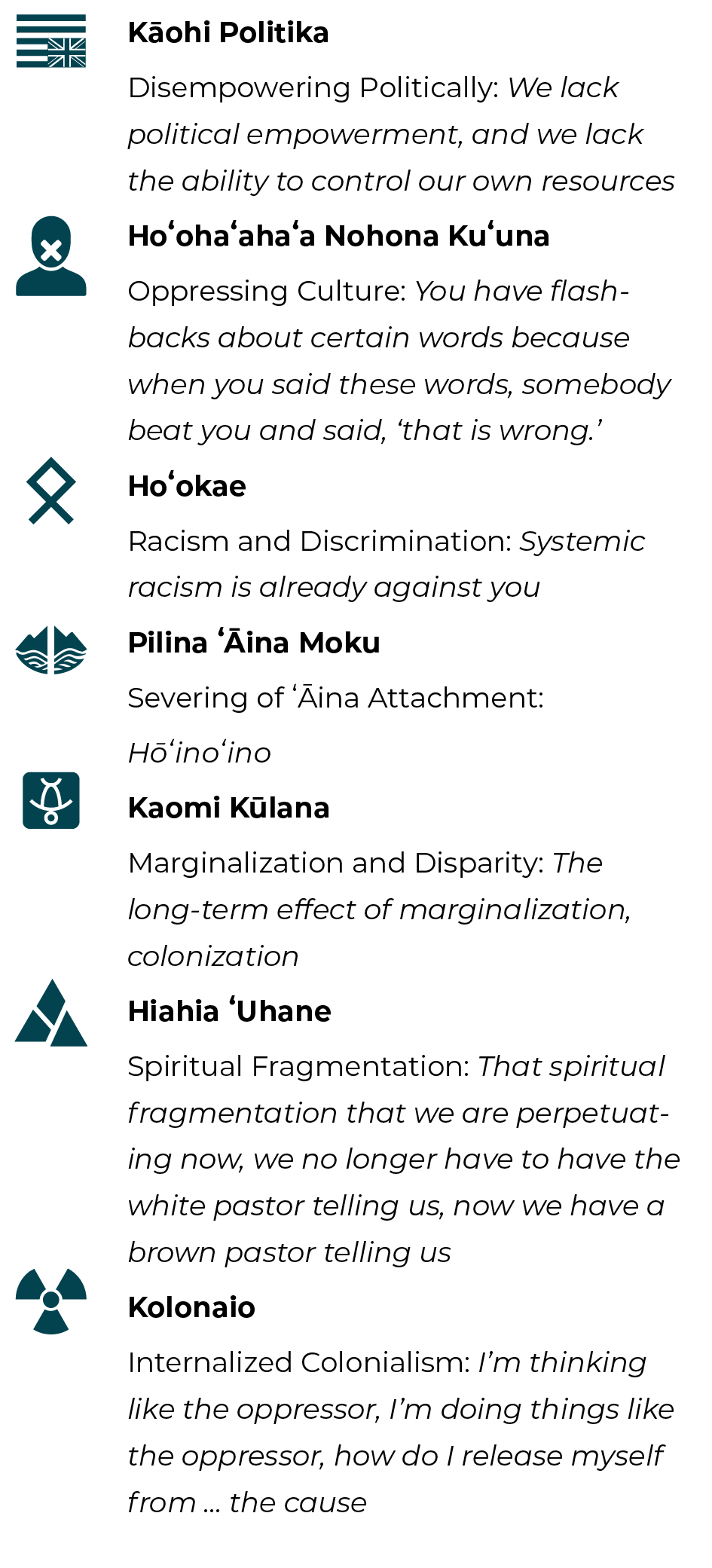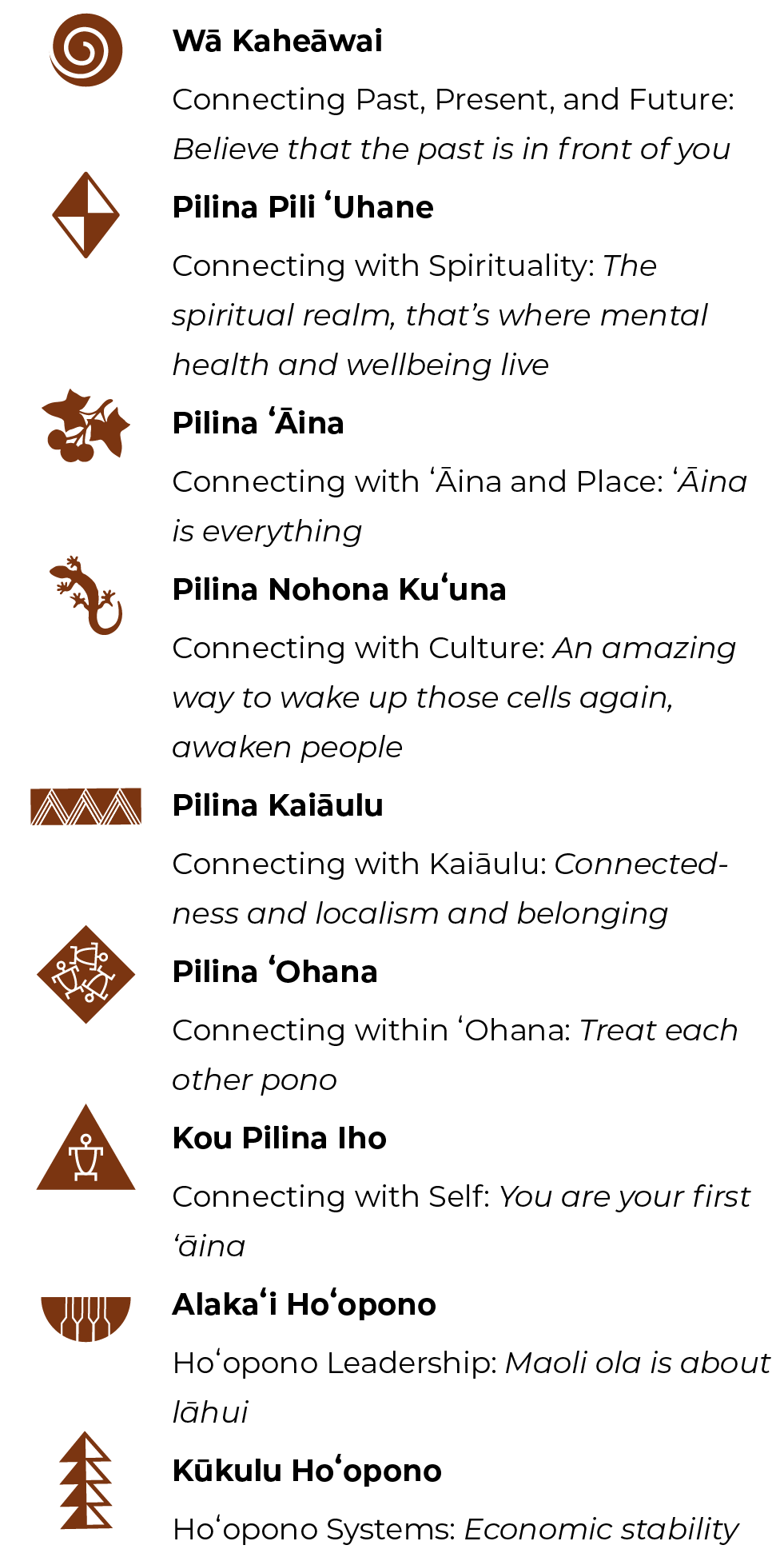
“Integration is the future”
Kanaka 'Ōiwi leader in
behavioral healthcare
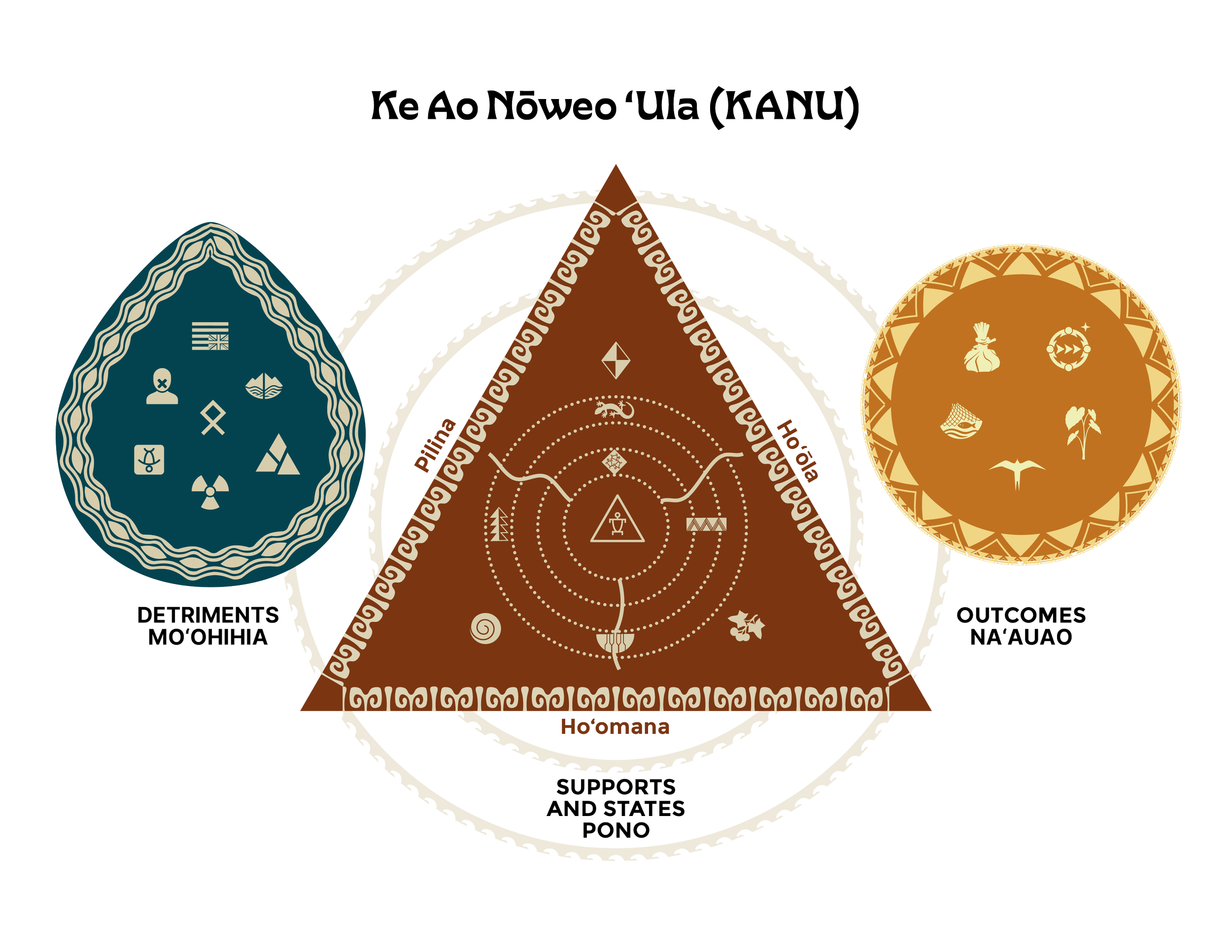
Ke Ao Nōweo 'Ula (KANU)
A theory of mauli ola for Kānaka ʻŌiwi in behavioral healthcare contexts
Ke Ao Nōweo 'Ula, “the new dawn that shines bright,” honors the sacred process of coming out of
the darkness of mo'ohihia and wahaheʻe and into mauli ola, leading to ao, dawn or enlightenment,
an outcome of mauli ola.
The acronym form is KANU, meaning both plant and hereditary, emphasizing the importance of
ʻāina (land, that which nourishes) and the relational, cyclical, intergenerational, interconnected ecology
of mauli ola processes.
KANU theory is for Kānaka ʻŌiwi in behavioral healthcare contexts, depicting both supportive and detrimental processes, maul iola as a state of being, and outcomes of mauliola through 21 process categories (242 processes). The theory emphasizes pono (equity, balance) and decolonizing the multi-level violence and disconnection brought on by detriments, so pilina (connection) can be nourished in trauma-informed ways, allowing for hoʻōla (healing) and hoʻomana (empowerment) for kānaka, ‘ohana, kaiāulu, systems, leadership, culture, āina, and spirit.
KANU emerged from a community-based research project with I Ola Lāhui, a trailblazing center serving Kānaka ʻŌiwi and rural communities.
KANU is rooted in the powerful and vital voices of:
19 Kanaka ʻŌiwi clients with experiences of depression
71 years of therapy engagement
12 mental and behavioral health providers who primarily work with Kānaka ʻŌiwi (e.g., LMFTs, psychologists)
152 years of mental/behavioral health provision
10 kumu and leaders in culture
9 cultural practices (e.g., hoʻoponopono, lāʻau lapaʻau)
Community partner co-authors:
A. Aukahi Austin Seabury
Hannah Preston-Pita
Keola Chan
Francine Dudoit
Keoki Kīkaha Pai Baclayon
Nanette Miles
H. Kainoa Kāneakua
Kyla Steuber
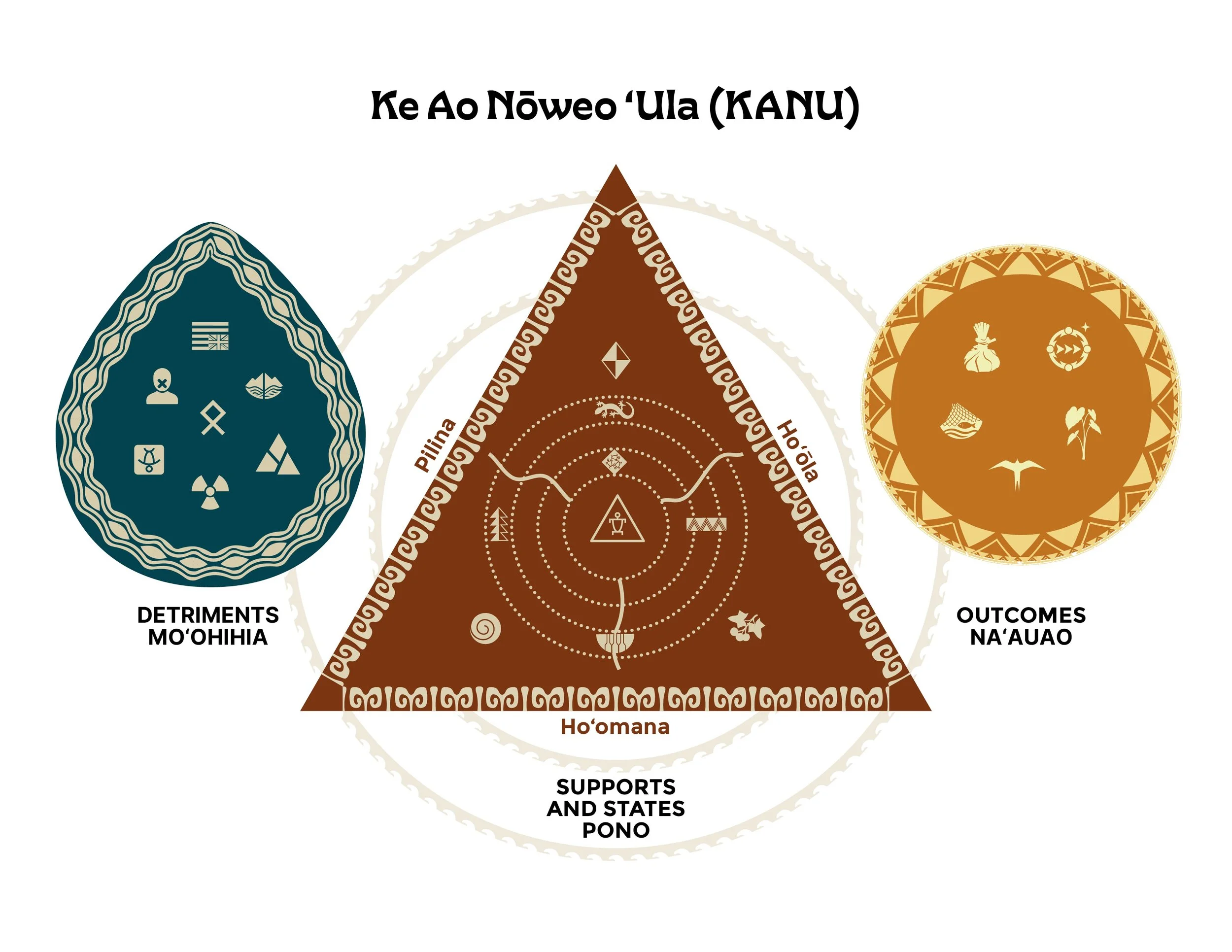
The blue wai drop honors our kai, rivers, many forms of ua (rain) which can signify tears (heavy rains), 'eha, kaumaha, while acknowledging the poison of the detriments - challenges to wellbeing. This poison in our wai can affect the entire ecology.
The red dirt triangle honors mauna energy rooted in Papahānaumoku and the mana in our very bones. At the center, the lōkahi triangle with themes of pilina (connection), hoʻōla (healing), and hoʻomana (empowerment) across the ecology of mauli ola.
The 'ōlena color and symbol for outcomes represents the energy of fire, honoring the light of Lā, of na'auao, and sky father Wākea.
The lauhala colored concentric circles made of waves show the interconnectedness of all the processes and domains, their relationship being cyclical rather than linear.
Continue below to learn a bit more about each symbol in the mauli ola lifeway. Contained in each symbol is several processes of mauli ola, like ahupua`a, interconnected, thriving in balance.
If you’d like to view a presentation on the theory, please feel free to view it here.
(Qina`au, 2024)
Manuscript in da works!
Qinaʻau, J., Chung-Do, J., Kaholokula, K., Nakamura, L., Austin, A., Rivera, C., Johnson, K. M. F. H., Steuber, K., Manzana, D., Firoozan, A., Lee, L., Preston-Pita, H., Chan, K., Dudoit, F., Baclayon, K. K. P., Miles, N., Kāneakua, H. K., Papa, T., Spencer, S., Fong., K., & Sasaki, J. (manuscript in preparation). Ke Ao Nōweo 'Ula: A transformative theory for decolonial and indigenized wellbeing.
Symbols by Kahanulālani Fung
Detriments
72 processes across 7 process categories centered on themes of:
settler colonial stress
marginalization
heteronormative binarism
Supports and States
110 processes across 9 process categories centered on themes of:
pilina (connection)
hoʻōla (healing)
hoʻomana (empowerment)
Outcomes
60 processes across 5 process categories centered on themes of:
naʻauao (enlightenment)
return to former times
land back

